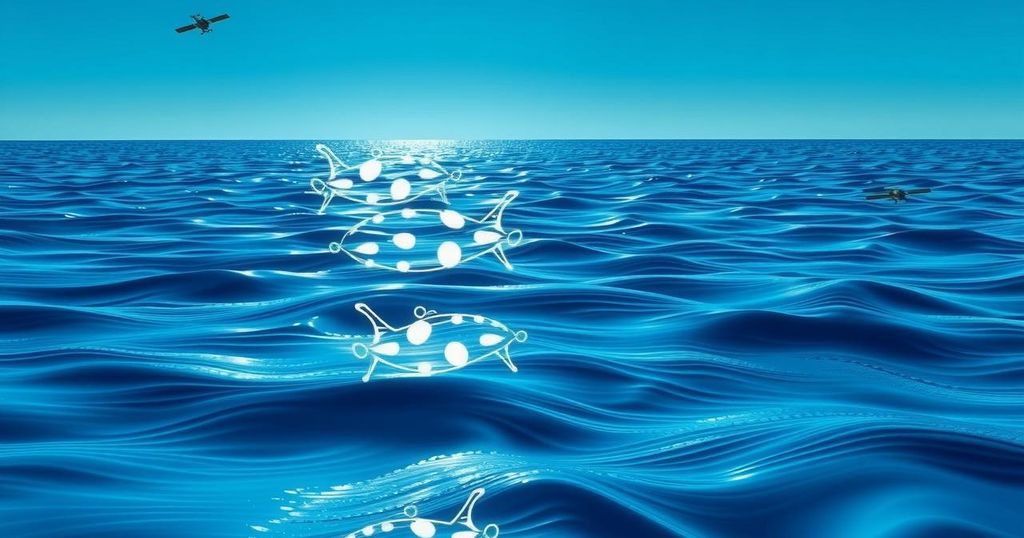International Initiative to Monitor Krill Populations from Space

An international project, ‘Krill from Space,’ is being initiated to monitor krill populations around Antarctica using satellite technology. This collaboration aims to inform fishing regulations and conserve marine ecosystems, highlighting krill’s critical role in the food web and carbon cycle. The project is spearheaded by the WWF, University of Strathclyde, and the British Antarctic Survey.
An international collaboration is being established to monitor the population of krill, a crucial species in Antarctic waters, using satellite technology. This initiative aims to gather precise data to guide fishing regulations in the Southern Ocean, focusing on detecting changes in water color caused by krill swarms, which can number up to 10,000 per cubic meter.
The ‘Krill from Space’ program was introduced during the 26th session of the Paris Climate Agreement (COP) held in Baku, Azerbaijan. Collaborators include the World Wildlife Fund (WWF), the University of Strathclyde, and the British Antarctic Survey, working together to create a satellite-based krill monitoring system.
According to Dr. Cait McCarry from the University of Strathclyde, the process begins by measuring how much light seawater absorbs when krill are added. Additionally, Rod Downie, chief polar advisor at WWF-UK, emphasized the urgency of managing the fishery amid declining sea ice and increasing industrial fishing, stating that improved monitoring through this project can aid in protecting krill habitats.
Despite their small size, krill are believed to play a significant role in the carbon cycle by consuming phytoplankton and depositing carbon into the ocean through their waste. Oceanographic Magazine reports that as sea temperatures increase and protective sea ice diminishes, krill populations are declining and migrating south.
David McKee, a Reader in the Department of Physics at Strathclyde, remarked on the revolutionary nature of this initiative, which aims to monitor krill swarms at critical feeding grounds for marine species. This collaboration with WWF and BAS seeks to foster international conservation efforts for this vital Antarctic species.
The ‘Krill from Space’ project represents an innovative approach to monitor a key species in the marine food web. By utilizing satellite technology to track krill populations, researchers aim to inform sustainable fishing regulations and enhance conservation efforts. The importance of krill as carbon cycle contributors further underscores the significance of this initiative in addressing climate change impacts.
Original Source: www.goodnewsnetwork.org






